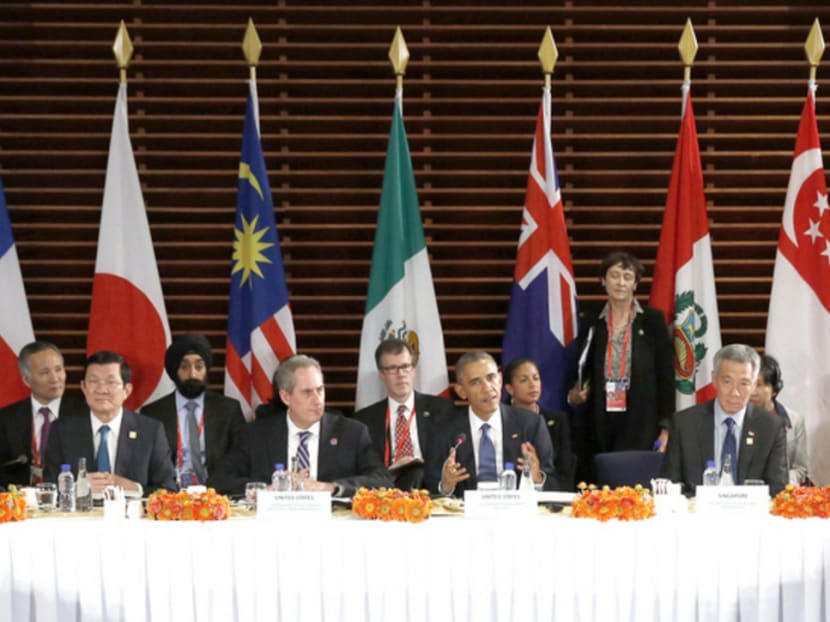No easy concessions on TPP talks before US trip, says Abe
TOKYO — Japanese Prime Minister Shinzo Abe said yesterday that Tokyo will not make easy concessions for the purpose of advancing the ongoing Trans-Pacific Partnership free trade talks in a hasty manner before his planned meeting with United States President Barack Obama on April 28.

The 12 countries involved in the TPP have sought to reach an agreement by the end of spring. PHOTO: REUTERS
TOKYO — Japanese Prime Minister Shinzo Abe said yesterday that Tokyo will not make easy concessions for the purpose of advancing the ongoing Trans-Pacific Partnership free trade talks in a hasty manner before his planned meeting with United States President Barack Obama on April 28.
The TPP negotiations are “in the final phase. But problems remain”, Mr Abe, who is making an eight-day official visit to the US from April 26, told a session of the House of Councillors Budget Committee.
“It is impossible to make unnecessary concessions in line with my trip to the United States,” he said.
The 12 countries involved in the TPP have sought to reach an agreement by the end of this spring. But the outlook remains uncertain, due partly to remaining gaps over the trade deal between Japan and the US, the two largest economies in the framework.
The negotiations have been delayed also because of a prolonged debate among US lawmakers on a Bill that grants Mr Obama fast-track authority to sign trade deals.
On Thursday, however, US Trade Representative Michael Froman expressed confidence of an early conclusion of a TPP deal despite the ongoing discussions on the Bill for so-called Trade Promotion Authority. “We do feel that we can close this out in a very small number of months,” Mr Froman said at an event in Washington.
The 10 other TPP negotiating countries are Australia, Brunei, Canada, Chile, Malaysia, Mexico, New Zealand, Peru, Singapore and Vietnam.
Meanwhile, a purported negotiation text released by the anti-secrecy website Wikileaks showed that some of the 12 countries demanded exemption from the proposed litigation rule involving corporation and state.
It is unknown, however, whether such demands are currently on the negotiation table for the TPP, as the text was dated Jan 20 and chief TPP negotiators held talks twice after that date. Wikileaks published the text on Wednesday.
The rule in question concerns investor-state dispute settlement clauses, which give a multinational company the right to sue a state for compensation if it believes its investment has been harmed by a government decision based on laws and rules.
People familiar with recent development of the trade talks said TPP negotiators are considering making exceptions to the rule, by having laws and rules not subject to lawsuits aimed at settling disputes between investor and state if they are judged to have been established for public interest.
According to the document made public by Wikileaks, countries such as Australia, Canada and Malaysia said the ISDS clauses should not apply to them in legal disputes with foreign companies in some business fields under the US-led TPP.
Some TPP negotiating countries, including Australia, are wary about introducing the clauses in the envisioned initiative, saying they could undermine state sovereignty. Influential US Senator Elizabeth Warren also took a cautious stance on the clauses. KYODO






